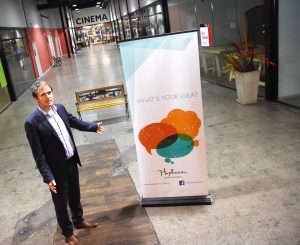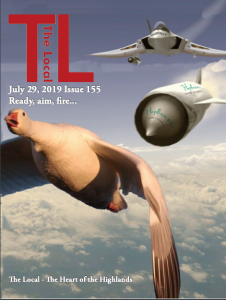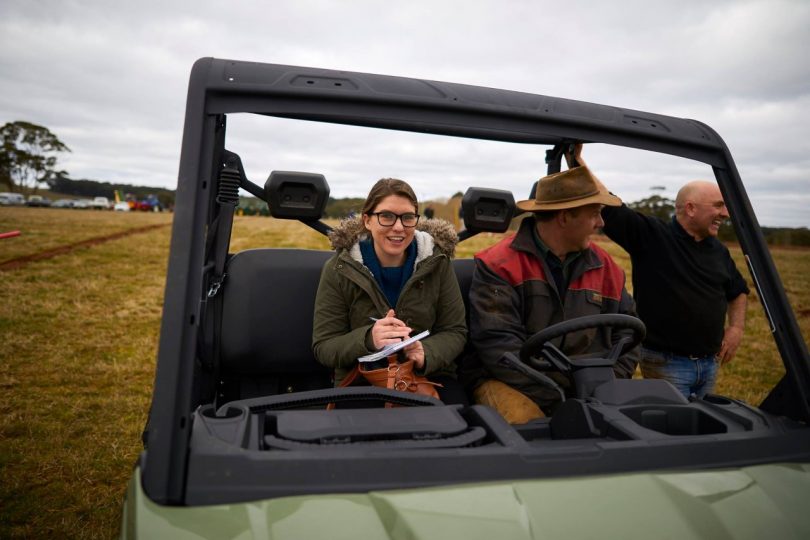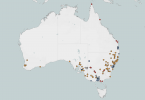The decision to cease print of the weekly Hepburn Advocate was not a shock to its local community.
Mayor of Hepburn and Councillor for the Coliban ward, Licia Kokocinski, said the community had been expecting the closure for a while.
“We all had a sense that its time on this earth was very limited,” she said.
The financial challenges of COVID-19 have caused many non-daily newspapers owned by Australian Community Media to shut down or reduce operations across regional news services.
The Public Interest Journalism Initiative’s mapping tool showed that The Advocate is one of many papers ceasing its weekly run of 7000 copies.
Former Advocate journalist, Rochelle Kirkham, said the paper had played an important role in connecting, informing and instilling pride in the community.
Regional papers have provided a training ground for young journalists to gain experience and create connections with the community.
Kirkham’s role as sole reporter for The Advocate was her first job in journalism while studying at university.
“I really had a passion and a love for telling community stories… you form connections with a whole range of people in the community …and they want to tell you what’s happening,” she said.
Kirkham said that she covered many topics at The Advocate, including council, police, community news, health and education which developed her news sense.

Rochelle Kirkham at the Daylesford Library October 2017. DYLAN BURNS
Before Kirkham, Brendan Wrigley was The Advocate’s lead reporter.
According to Wrigley, the community’s interest in the paper declined, when no full-time journalist was dedicated to covering issues in the community.
“From a journalist’s perspective, it also made the task a lot harder to achieve, in terms of producing a really good product,” he said.
The newspaper had content syndicated from The Ballarat Courier alongside his reporting.
Wrigley said that the community ran the risk of missing important local stories entirely.
“Without a dedicated service for Hepburn, there’s always going to be stories that go missing and things that don’t get reported.”
Though The Advocate still runs online, Wrigley said its print shutdown would impact older readers who relied on the physical paper for news.
Cr Kokocinski was unaware that the paper was still running online, and also said that she is not sure that older demographics could access it.
“I don’t know anybody who looks at [The Advocate] online… people just accept that it’s gone,” she said.
Cr Kokocinski said the paper towards the end was ”pretty slim” – just a “few sheets of paper folded in half” with a local story on the front page and the rest of the news from the broader region.
She said that though local matters are not of interest to the big daily newspapers, they are still valuable in regional communities.
Cr Kokocinski elaborated that there had not been a journalist doing council rounds for years.
Communications officer at the Hepburn Council, Maria Abate, said that the absence of a dedicated journalist at The Advocate has led to multiple reporters with less local knowledge covering the area.
The Hepburn Council uses community newsletters, social media and their website, in addition to the local paper, to communicate their news now, said Abate.
Wrigley said that it was vital for papers like The Advocate to hold the local council to account, particularly in a region with diverse townships and where the council has a reasonable budget.

Former CEO of Hepburn Shire Aaron van Egmond in the Rex. KYLE BARNES.
Kirkham also said that there had been some contentious council issues that needed to be shared with the community while she was at The Advocate.
An example is the Rex, a building in the main street with an arcade and cinema, bought by the council to make into their offices and a library.
“It’s blown way over budget and way over time, it was real mismanagement with that project,” Kirkham said.
Cr Kokocinski said there were other printed papers in the area, such as the monthly Trentham Trumpet and the Midland Express, a weekly paper focused on the Macedon Ranges.
Kirkham said that though ABC Ballarat and Nine News Ballarat also operated in the region, they were not as localised as The Advocate.
Alternative news at The Local
The only publication that remained dedicated to the Hepburn area was The Local, which started as a fortnightly magazine in 2013 run by a couple formerly employed by The Advocate.
Kyle Barnes is The Local’s general manager and photographer and Donna Kelly is its managing editor.
When employed at The Advocate, they started to notice the community’s declining interest in the paper.
Kelly said that it was the community that encouraged them to start their own publication.
While Barnes said: “[The Advocate] was getting bounced around between Ballarat and Bendigo and didn’t really have a home”.
Whilst it’s a “tough industry”, The Local’s business model of contracting journalists and photographers for the magazine was proving a success, Barnes said.
“We keep everything really lean, we don’t have a newsroom full of people.”
Cr Kokocinski said though The Local was doing a good job of providing news, there were still areas unaddressed, such as council activity and crime.
Barnes said that “[The Local] doesn’t run your normal hack news … we don’t do cheque handovers or ambulance chasing”.
Kelly called The Local “a good news read” with longer-form stories focused on “people, places, festivals, artists and musicians”.
Wrigley said that “[The Local] probably had a little bit more of an agenda at times than something like The Advocate which tried to live up to pretty basic journalistic integrity”.

Front Cover of the Local Issue 155 July 2019 following controversy around an ongoing story about Geese in a local lake. Supplied Kyle Barnes
“I think The Advocate was a bit more old school in that sense, whereas The Local allowed the editors’ views to permeate through the publication a bit more.”
Despite these issues, The Local has allowed the community to stay connected during a time of isolation.
The Local began to publish weekly when the pandemic started to take shape, two weeks later The Advocate ceased printing.
“We just felt that people needed more news than just fortnightly,” Kelly said.
She added that during her 30 years in journalism, she’s never had a more positive response on a publication, and had received emails thanking The Local for its work.
“If The Advocate had shut and we weren’t there, then it would be really hard for the community to stay connected.”
FEATURED IMAGE: Rochelle Kirkham reporting at the Rocklyn Ploughing Competition August 2017. LUKA KAUZLARIC.



